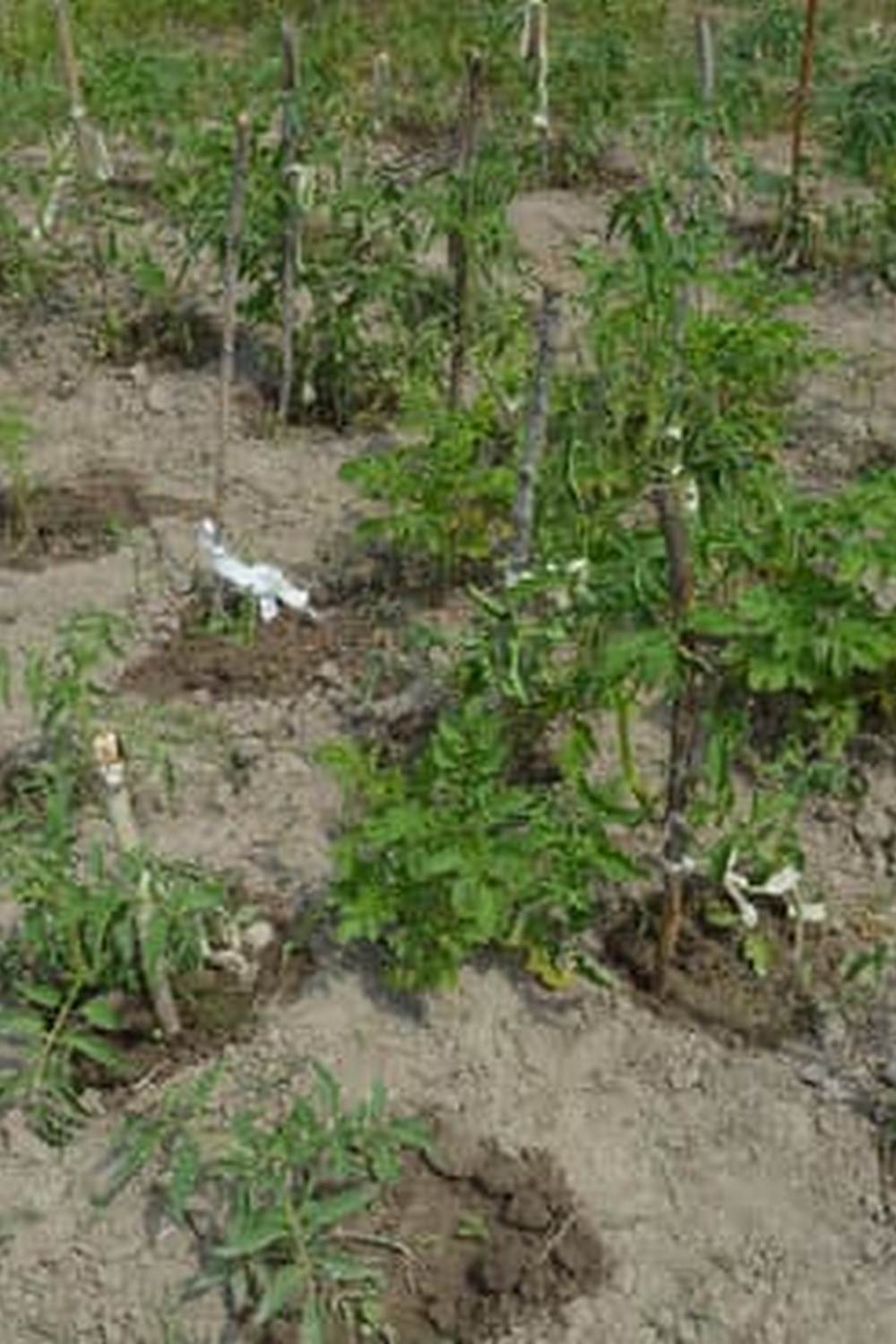Wood ashes have long been a staple in gardening practices, known for their potential benefits in promoting plant growth. One common question that many gardeners ask is, “is wood ashes good for vegetable gardens?” The answer lies in understanding the composition of wood ashes and how they interact with the soil and plants.
Derived from the burning of organic materials such as wood, wood ashes are rich in minerals that can be beneficial for vegetable gardens. Potassium, calcium, and magnesium are among the nutrients found in wood ashes that can enhance plant growth and yield. Additionally, wood ashes can also help to raise soil pH levels, making them ideal for acidic soils commonly found in vegetable gardens.
In this article, we will delve into the various benefits of using wood ashes in vegetable gardens, explore their nutritional value, discuss how they can improve soil quality through balancing pH levels, detail different application methods for optimal results, address potential precautions and considerations when using wood ashes, debunk common misconceptions surrounding their use, and even provide alternative ways to utilize wood ashes beyond gardening.
Let’s unearth the truth about whether wood ashes truly deserve a spot in your vegetable garden maintenance routine.
Benefits of Wood Ashes for Vegetable Gardens
Wood ashes serve as a valuable resource for enhancing the health and productivity of vegetable gardens. One significant benefit of using wood ashes in vegetable gardens is the enrichment of soil with essential nutrients. Wood ashes contain potassium, calcium, magnesium, and other trace minerals that are beneficial for plant growth.
Potassium, in particular, plays a crucial role in improving fruit quality and overall plant vigor. Calcium helps prevent blossom end rot in tomatoes and other vegetables, while magnesium is essential for photosynthesis.
In addition to providing important nutrients, wood ashes can also help raise the pH levels of acidic soils. Many vegetables prefer slightly alkaline soil conditions, and adding wood ashes can help balance pH levels to create an optimal growing environment.
By increasing the alkalinity of the soil, wood ashes can also reduce the presence of certain pests and diseases that thrive in acidic conditions. However, it is essential to monitor pH levels closely when using wood ashes to avoid making the soil too alkaline, which can negatively impact plant health.
Furthermore, wood ashes contribute to soil conditioning by improving its structure and promoting better drainage. The fine particles in wood ashes help break up compacted soil and improve its aeration, allowing roots to penetrate more easily and access water and nutrients efficiently.
This enhanced soil structure is especially beneficial for root crops like carrots and potatoes that require loose, well-draining soil for optimal growth. When used judiciously and in conjunction with other organic amendments, wood ashes can be a valuable tool for maintaining healthy and productive vegetable gardens.
| Benefit | Explanation |
|---|---|
| Enrichment of Soil Nutrients | Wood ashes contain potassium, calcium, magnesium which are beneficial for plant growth. |
| pH Level Balancing | Wood ashes can help raise pH levels of acidic soils creating an optimal growing environment for vegetables. |
| Soil Conditioning | Improves soil structure by breaking up compacted soil and promoting better drainage which benefits root crops. |
Nutritional Value of Wood Ashes
Wood ashes are the residue left behind after burning wood, often used in gardening for their various benefits. One of the key reasons why wood ashes are popular among gardeners is their nutritional value. Wood ashes contain essential nutrients such as potassium, calcium, magnesium, and trace elements like iron and zinc. These nutrients play a crucial role in promoting plant growth and overall health.
Potassium is a vital nutrient found in wood ashes that is beneficial for vegetable plants. It helps improve root development, increase resistance to diseases, and enhance fruit quality. Calcium present in wood ashes helps regulate cell growth and strengthen cell walls, making plants more resilient.
Magnesium contributes to the formation of chlorophyll, which is essential for photosynthesis and overall plant vigor. The trace elements in wood ashes provide additional support for plant growth by aiding in enzyme activities and nutrient uptake.
Incorporating wood ashes into the soil can provide a natural source of these essential nutrients for vegetable plants. However, it is important to note that excessive use of wood ashes can lead to nutrient imbalances and pH issues in the soil. Therefore, it is recommended to perform soil tests before applying wood ashes to ensure proper nutrient levels and pH balance for optimal plant growth.
pH Levels and Soil Conditioning
How Wood Ashes Affect Soil pH Levels
Wood ashes are known for their alkaline nature, which can be beneficial in balancing soil pH levels. When mixed into the soil, wood ashes can help raise the pH levels of acidic soils, making them more neutral. This is particularly useful for vegetable gardens that require a slightly alkaline environment to thrive. By using wood ashes, gardeners can ensure that their plants have the ideal growing conditions for optimal health and productivity.
Improving Soil Quality With Wood Ashes
In addition to adjusting pH levels, wood ashes also offer other benefits when it comes to soil conditioning. The potassium content in wood ashes is beneficial for plant growth and overall soil quality. Potassium helps improve soil structure, enhance nutrient uptake by plants, and promote root development. When applied correctly, wood ashes can help create a healthy and fertile environment for vegetable plants to flourish.
Best Practices for Using Wood Ashes in Vegetable Gardens
While wood ashes can be beneficial for vegetable gardens, it is important to use them judiciously and follow best practices for application. It is recommended to conduct a soil test before applying wood ashes to determine the current pH levels and nutrient needs of the soil.
Additionally, it is advisable to spread the wood ashes evenly over the garden beds and avoid concentrated applications in one area. Regular monitoring of soil pH levels and plant growth is also essential to ensure that the use of wood ashes is positively impacting the vegetable garden.
Application Methods
Wood ashes can provide numerous benefits to vegetable gardens when applied correctly. Here are some different methods for utilizing wood ashes in your garden to ensure optimal results:
- Top-dressing: One of the simplest ways to apply wood ashes is by top-dressing the soil. Simply sprinkle a thin layer of ashes around the base of your plants, making sure not to pile it up against the stems. This method can help improve soil structure and add essential nutrients to the root zone.
- Mixing into compost: Wood ashes can also be mixed into compost piles to enrich the resulting organic matter with valuable minerals. When adding ashes to compost, make sure to blend them in well and avoid introducing too high of a concentration, as this could potentially raise the pH level excessively.
- Creating ash tea: Another effective way to use wood ashes in vegetable gardens is by steeping them in water to create an “ash tea” solution. This liquid fertilizer can be applied directly to plant roots or foliage, providing a quick boost of nutrients and enhancing overall plant health.
In addition to these application methods, it’s important to note that moderation is key when using wood ashes in vegetable gardens. While they can offer valuable nutrients like potassium, calcium, and magnesium, excessive amounts can lead to soil alkalinity issues and harm sensitive plants. By incorporating wood ashes judiciously and monitoring soil pH levels regularly, gardeners can harness their benefits effectively without causing unintended consequences.
Precautions and Considerations
Wood ashes contain a variety of nutrients that can benefit vegetable plants, but it’s important to understand the potential risks and side effects of using them in your garden. One of the main concerns is the alkaline nature of wood ashes, which can significantly increase soil pH levels.
While some vegetables prefer slightly alkaline soil, excessive use of wood ashes can lead to pH imbalances that may harm plant growth. It’s essential to test your soil regularly and monitor the pH levels when using wood ashes to avoid overapplication.
Potential Risks
Excessive use of wood ashes can potentially lead to nutrient imbalances in the soil, affecting the overall health and productivity of your vegetable plants. The high potassium content in wood ashes can also interfere with calcium uptake by plants, causing deficiencies in essential nutrients. Additionally, some vegetables are sensitive to alkaline conditions and may exhibit stunted growth or nutrient deficiencies if exposed to too much wood ash.
Side Effects
Another consideration when using wood ashes in vegetable gardens is the presence of heavy metals and contaminants that may be present in the ash. Wood ashes from treated or painted wood, for example, can contain harmful chemicals that can contaminate the soil and affect plant health.
It’s crucial to use only pure wood ashes from untreated sources and avoid adding any materials that may introduce toxins into your garden. Additionally, proper storage and handling of wood ashes are necessary to prevent accidental ingestion or inhalation of harmful substances during application.
Common Misconceptions
Wood ashes have been a popular addition to gardens for many years due to their numerous benefits. However, there are several common misconceptions about using wood ashes in gardening that need to be addressed.
One of the most prevalent myths is that wood ashes can make soil too alkaline for vegetable plants to thrive. While it is true that wood ashes are alkaline in nature, when used in moderation and in combination with other organic materials, they can actually help balance soil pH levels and create a healthy growing environment for your vegetables.
Another misconception is that wood ashes contain harmful chemicals that can harm vegetable plants. In reality, wood ashes are a completely natural product that can provide essential nutrients to the soil. Wood ash is rich in potassium and also contains calcium, magnesium, and trace elements that are beneficial for plant growth. When used correctly and in the right quantities, wood ashes can improve soil structure, promote microbial activity, and enhance nutrient uptake by vegetable plants.
It is also important to note that not all types of wood ashes are created equal. Wood ashes from untreated, clean wood sources such as fruit trees or hardwoods like oak or maple are ideal for use in vegetable gardens.
Avoid using ashes from pressure-treated or painted woods, as these may contain harmful chemicals that could be detrimental to your plants. Always ensure that the wood ash you use comes from a safe and natural source to reap the maximum benefits for your vegetable garden.
| Myths About Wood Ashes | Accurate Information |
|---|---|
| Wood ash makes soil too alkaline | Moderate use of wood ash balances pH levels |
| Wood ash contains harmful chemicals | Natural wood ash provides essential nutrients |
| All types of wood ash are the same | Avoid treated or painted woods for safer use in gardens |
Other Uses for Wood Ashes
Wood ashes have long been used in gardening for their various benefits, but their usefulness is not limited to just nourishing vegetable plants. In fact, there are several alternative ways to utilize wood ashes in the garden and around the home that can make them a versatile and valuable resource.
Here are some creative ways to make use of wood ashes beyond just vegetable gardens:
- Compost additive: Wood ashes can be sprinkled into compost bins to help break down organic matter faster and enrich the compost with valuable nutrients. They also help neutralize acidic conditions in the compost pile.
- Pest control: Scatter wood ashes around the base of plants to deter slugs, snails, and certain insects like caterpillars. The rough texture of the ash particles can act as a barrier to these pests.
- Deodorizer: Wood ashes have natural deodorizing properties due to their alkaline nature. Sprinkling them in pet areas, garbage cans, or even in shoes can help absorb and neutralize odors.
Additionally, wood ashes can be utilized outside of the garden for practical purposes such as:
- Ice melt: Spread a thin layer of wood ash on icy walkways or driveways to help create traction and melt ice more quickly. This eco-friendly alternative is safer for pets and plants than traditional salt-based de-icers.
- Homemade soap: With its abrasive texture and alkaline properties, wood ash can be used as an ingredient in homemade soap recipes. When mixed with fats or oils, lye derived from wood ash creates a cleansing and moisturizing soap bar.
By exploring these alternative uses for wood ashes, you can make the most of this natural resource while benefiting your garden and home in more ways than one. So next time you have a pile of wood ashes leftover from your fireplace or bonfire, consider trying out some of these creative applications for a sustainable and eco-friendly solution.
Conclusion
In conclusion, the use of wood ashes in vegetable gardens can be a valuable and effective practice for promoting plant growth and improving soil quality. Wood ashes are a natural source of key nutrients such as potassium and calcium, which are essential for healthy plant development. Additionally, wood ashes can help balance soil pH levels and enhance overall soil conditioning, creating an optimal environment for vegetables to thrive.
While there are numerous benefits to using wood ashes in vegetable gardens, it is important to exercise caution and follow appropriate application methods. Over-application of wood ashes can lead to excessive pH levels, potentially harming plants and affecting soil fertility. It is crucial to conduct soil tests regularly to monitor pH levels and adjust the amount of wood ashes applied accordingly.
Overall, when used responsibly and in moderation, wood ashes can be a beneficial addition to your vegetable garden routine. By understanding the nutritional value of wood ashes, practicing proper application techniques, and considering any precautions or considerations mentioned earlier, you can successfully harness the benefits of this natural resource for healthier plants and more productive harvests.
So, if you have been wondering “Is wood ashes good for vegetable gardens? “, the answer is yes – just remember to use them mindfully for optimal results.
Frequently Asked Questions
Which Vegetables Do Not Like Wood Ash?
Some vegetables do not like wood ash in the garden, such as potatoes, radishes, and sweet potatoes. These vegetables prefer acidic soil conditions, and wood ash can raise the pH levels, making it less favorable for them.
Do Tomatoes Like Wood Ash?
Tomatoes generally tolerate wood ash well in the garden. In fact, some gardeners even use it to add calcium and increase pH levels in the soil, which can be beneficial for tomato plants. Just be cautious not to over-apply the ash.
Can I Put Ashes in My Vegetable Garden?
While wood ash can be beneficial in small quantities for certain vegetables like tomatoes, it’s important to avoid adding too much to your vegetable garden. Excessive amounts of wood ash can raise the soil pH excessively and harm plants that prefer acidic conditions. It’s best to use wood ash sparingly and monitor your soil’s pH levels regularly.

If you’re looking to get into vegetable gardening, or are just looking for some tips on how to make your current garden better, then you’ve come to the right place! My name is Ethel and I have been gardening for years. In this blog, I’m going to share with you some of my best tips on how to create a successful vegetable garden.





